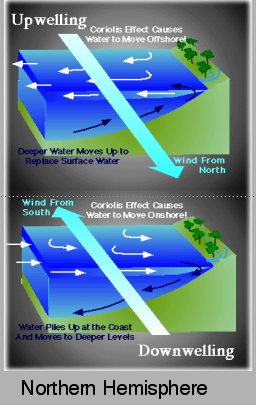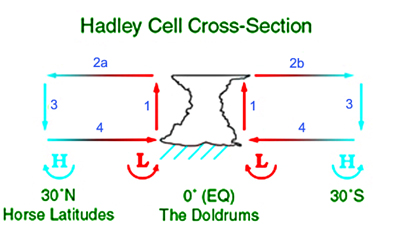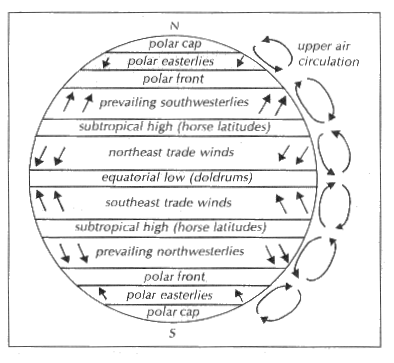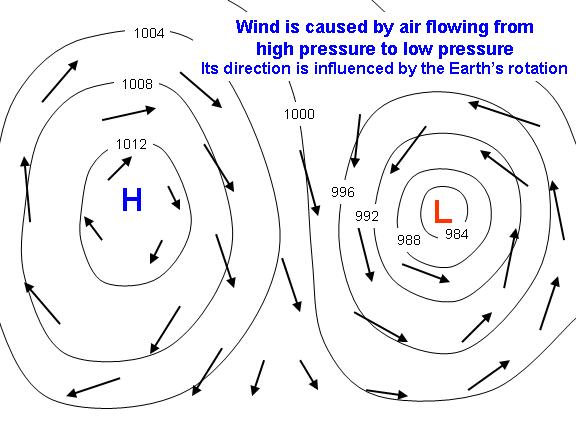
Weather and Climate Summer Institute 2011
Exploratorium Teacher Institute Workshop
Lori Lambertson, Paul Doherty
Lori has a webpage http://philo.exploratorium.edu/~loril
Paul has a webpage http://www.exo.net/~pauld
The workshop is archived on the web http://www.exo.net/~pauld/summer_institute/weather2011/Weather2011.htm
Tentative Schedule
Monday 1 August
Big Ideas: Heat vs. Temperature, Nature of the Atmosphere
Introductions and Welcome
Weather vs Climate
Climate is what you expect, weather is what you get.
Introductory Activity:
What is Temperature
Temperature hand holding Line up a group of people from coldest hands to warmest.
Find the person closest to your temperature to introduce to the group.
Heat Camera
After Introductions, thermal infrared camera view and temperature gun readings of hands, thermometer readings are optional.
The infrared temperature gun is like a one pixel thermal infrared camera.
The necessity of thermometers. Since hand detection of temperature is so subjective, we need to find a measurement tool. Many materials exhibit linear expansion as their temperature increases.
Build a thermometer by Eric Muller http://www.exo.net/~emuller/activities/Canned%20Heat.pdf
The water coloring we used was Crayola "color bath drops" I got them at Toys R Us in the bath section. It does not stain hands and clothing as much as food coloring does.
Celcius and Farenheit used the linear expansion of liquids with temperature, to measure temperature independent of human perception.
Celcius set the boiling point to be 0 and the freezing oint to be 100, he got it backward from our current scale.
Centigrade as a temperature unit was abandonned in 1948. (Celcius 0°C is based on the triple point of water, while Centigrade 0°C was based on the freezing point at 1 atmosphere pressure. They are different by 0.01 °C)
Heat Transfer: Conduction Convection Radiation
Thermal postcards use thermochromic liquid crystal sheets to explore heat flow.
Thermochromic liquid crystal sheet suppliers
Educational Innovations http://www.teachersource.com/Chemistry/LiquidCrystal/LiquidCrystalSheets4x4inch.asp
Edmunds Scientific http://www.edmundoptics.com/products/displayproduct.cfm?productid=1642
Lunch
Project Time: Library time, examine the selected references and exhibits.
Lunch question: What happens when a naked person takes a hike in the vacuum of space?An article by PD http://www.sfsite.com/fsf/2001/pmpd0110.htm
Small Groups Visiting Exhibits:
Three Kinds of Light Infrared, visible and ultraviolet.
Catch a Falling Spark These 2000°F sparks have so little mass they do not transfer much thermal energy to human skin.
Hot and Cold Chimneys
Hot Coils
Hotspot
Lexie sign-up, Presidigo pass.
The atmosphere 1.5 hrs.
Scale and Layers of the atmosphere
Scale model of the atmosphere using an earth wedge. (E Muller LL)
Thickness of the Atmosphere Scale model using an earth globe.
Research: (teachers do live online research)
homosphere vs heterosphere,
Troposphere vs stratosphere mesosphere(boringosphere) thermosphere, exosphere,
Ionosphere vs magnetosphere.
Idea The ozone layer creates the stratosphere.
Idea The temperature of the thermosphere as modelled by the Small hot sparks exhibit.
The first law of ngineering It Leaks!
Resources
What is Temperature An introductory essay on the concepts of temperature by Paul Doherty.
Books
Clouds in a Glass of Beer by Craig Bohren http://www.amazon.com/Clouds-Glass-Beer-Experiments-Atmospheric/dp/0486417387
What Light Through Yonder Window Breaks by Craig Bohren http://www.amazon.com/Light-Through-Yonder-Window-Breaks/dp/0486453367/ref=ntt_at_ep_dpt_4
Websites
Bad Meteorology by Alistair Frasier and Craig Bohren http://www.ems.psu.edu/~fraser/BadMeteorology.html
Day 1 Questions
A great on;ine resource Larry Braile Geologist + 5th grade teacher wife. http://web.ics.purdue.edu/~braile/
Are there live thermal infrared camera videos on the web?
I have not found any yet but here are some pre-recorded videos, It id such a good idea maybe the exploratorium should do this?
Tuesday August 2
Big Ideas: Weather and Sun, Water Cycle
Power of the Sun - the sun drives the water cycle.
Small groups visiting exhibits:
Fog Chamber
Water Freezer
Floating Raindrop
Water Drop Camera
Convection
Water Cycle:
Water Cycle Video
Use VLC player to play the video donwload it here Windows Mac
Water Cycle Column
Build a water cycle column
http://www.bottlebiology.org/investigations/terraqua_main.html
Convection Currents
This model demonstrates convection currents in water, which we can generalize to understand the movement of water vapor in our atmosphere as part of the water cycle. Try this adaptation to really drive the convection: Support your plastic box with two coffee mugs – one filled with hot water, and the other one empty. Add the red food coloring to the hot water side of the box.
http://eo.ucar.edu/educators/ClimateDiscovery/ESS.htm
The Water Cycle Game
A kinesthetic activity in which students move through water cycle stations to understand the various ways water moves in the water cycle. From NOAA.
Main page:
USGS Water Cycle Image and Text
A detailed image with options such as “Complete Summary”, “Quick Summary”, and printable versions in many different languages.
http://ga.water.usgs.gov/edu/watercycle.html
Lunch
Project Time – Build a Rain Gauge
Lunch questions
Arctic ice age vs time http://www.arctic.noaa.gov/reportcard/seaice.html
http://nsidc.org/images/arcticseaicenews/20101004_Figure6.jpg
Phases: Solid liquid gas Thought experiments and experiments to determine whether something is a solid.liquid or gas.
Balloon Model solid liquid gas
Gas Model Snack
http://www.exploratorium.edu/snacks/gas_model/index.html
Thermometers which were independent of the expanding material used ideal gasses, this led to the 19th century definition of temerature:
Temperature is the average random kinetic energy of translational motion of an ideal gas per molecule.
Gas model of temperature snack PD pingpong balls in a rat cage and snack^2 with berry containers LL
Phase diagram of water
Heat flow on phase change
Heat flows into water from its surroundings when it boils
Heat flows out of water into its surroundings when it freezes
Cloud in a Bottle In this activity, cloud droplets form around nucleating particles when the pressure in the bottle suddenly drops due to expansion of the bottle.
http://www.exploratorium.edu/snacks/fog_chamber/index.html
Why gas cools upon expansion, volume increase and pressure decrease a combination of two laws:
Ideal gas law PV=nRT
Adiabatic gas law PV^gamma = Constant gamma = Cp/Cv Cp is specific heat at constant pressure, Cv at constant volume. for air gamma = 7/5
also T V^(gamma-1) = constant
Cloud In a Jar Cloud production by cooling.(NOAA activity)
http://www.prh.noaa.gov/hnl/kids/activities.php#Cloud
Fog Chamber
Cloud production by cooling.(NOAA activity) http://www.prh.noaa.gov/hnl/kids/activities.php#Cloud
Measuring Raindrops a NASA lesson. Allow rain to fall onto a 1/4 inch thick layer of flour, or to hit light colored card stock.There are sample data sheets to measure if there is no actual rain.
http://www.nasa.gov/pdf/462953main_RW6-MeasuringRaindrops_508.pdf
Humidity absolute /Relative
Dew Point (UCDavis) Measure the dew point by cooling a can with ice until droplets form on the outside.
http://biomet.ucdavis.edu/frostprotection/Measure%20Dewpoint/fp003.html
Cloud Condensation Nuclei http://apollo.lsc.vsc.edu/classes/met130/notes/chapter5/ccn.html
Wednesday 3
Coriolis, Pressure, Weather Systems, High and Low Pressure Systems
Exhibits:
Coriolis Running in circles http://www.exo.net/~emuller/activities/Running%20in%20Circles-%20Coriolis%20effect.pdf
Coriolis movie http://www.archive.org/details/frames_of_reference?start=1079.5
Turbulent Orb
Spinning Blackboard Coriolis model NOAA http://oceanservice.noaa.gov/education/lessons/twisting_air_lesson.html
Water Cannon Coriolis effect http://www.exo.net/~pauld/activities/physics/coriolisfountain.html
Tornado A tornado needs a source of low pressure, and initial rotation, and condensation of water vapor to power it and make it visible.
Intro to Pressure
Atmosphere bar PD
Atmosphere Bottle LL
Person in a bag.
Magnetic Atmosphere Model Use a stack of 5 magnets on a pencil to model the exponential pressure and density of the atmosphere with height.
Idea: 90% of the atmosphere is within 17 km = 10 miles of sea level. The half height is 5.6 km. half-height vs scale height
Composition of the atmosphere
Ikea tape atmosphere Mark the percentage of atmospheric components using Ikea measuring tapes.
Atmosphere composition model with rice in a bottle PD White rice grains can be easily dyed and dryed using food coloring. A bottle can be filled with the colored rice grains in proportion to the number of each molecule in the atmosphere.
Lunch Project Time: Build an atmosphere bottle
Boyling Water .Water will boil at 100 °C at atmospheric pressure. It will boil at lower temperatures at lower pressures. It will boil at 0°C at 6 millibars pressure and boil water at room temperature in a syringe.
Water Freezer
Air Pressure
http://en.wikipedia.org/wiki/Pascal_(unit) Units and conversion.
High pressure Low pressure areas and spin Northern Hemisphere
Weather map with isobars.
Idea: Isobars high pressure areas as a hill. Wind follows isobars. Closer isobars faster winds.
The Exploratorium weather station Ron Hipschman. http://www.exploratorium.edu/weather
Making a weather station with 1 wire sensors ($60 per module)
http://en.wikipedia.org/wiki/1-Wire
Weather Toys
http://www.weathertoys.net/weathertoys/main.html
Thursday 4
Pier 3
Exploring the Exploratorium at the Piers
Big Ideas:
Unequal Heating of Earth, Clouds, Heat Islands, Local Weather
Answer to Teacher Question: The fog on the California Coast has a western edge at the edge of the California current 60 nautical miles from the coast.
Bay Model with new graphics

4 groups, spend 30 minutes at each:
1) Feeling The Heat
Observing urban “heat island” effects using IR thermometer. (NESTA infrared thermometers cost about $30 in 2011 from amazon)
http://www.windows2universe.org/teacher_resources/teach_heat.html
2) Observatory Exhibits
Too Slow to Notice Measure water evaporation.
Geochron
Personal Sky
Terrence's ipads
3) Build Nephoscope (with Bryan?)
Use the nephoscope to track clouds.
4) IR View of the World
Look at the world in the near infrared using acrylite 1146 acrylic filters. (Little Shop of Physics) http://littleshop.physics.colostate.edu/NSTA2010Documents/SeeBeyondTheRainbow.pdf
Do it with you camera
Lunch Project fill your belly
Unequal Heating of the Earth
Hadley Cell cross section


Use your Nephoscope
1. Seasons:
Solar Motion demonstrator
Demonstrate the path of the sun across the sky
http://lawrencehallofscience.org/pass/passv12/PASSv12SolarMotionDemo.pdf
Self-Centered Globe See the distribution of sunlight on a globe, feel the resulting temperatures.
2. Diurnal Cycles
Geochron
Build Cloud Spotter http://www.srh.noaa.gov/srh/jetstream/synoptic/ll_clouds1.htm
Cloud formation and identification
http://www.srh.noaa.gov/srh/jetstream/synoptic/clouds.htm
http://www.srh.noaa.gov/srh/jetstream/synoptic/clouds_max.htm
References from Sebastian
Historic SF Maps
http://www.davidrumsey.com/
Artist Rebecca Solnit Maps
http://www.rebeccasolnit.com/infinitecity
Cloud Appreciation Society
http://cloudappreciationsociety.org/
Friday 5
Weather
Wind -Beaufort scale
Build RAFT windvane. Challenge make an anemometer Take it outside.
Jet Stream
High and Low Pressure and Wind

Humidity: absolute/relative
The ratio of the actual vapor pressure of water to the saturation vapor pressure is the relative humidity (expressed in percent.)
The relative humidity can be derived from the dew point.
The vapor pressure of water is proportional to the absolute humidity.
Idea: The atmosphere does not "hold" water vapor. The saturation vapor pressure is the same whether the atmosphere is present or not. It only depends on the temperature.
Lunch
1PM Lexie credit.
Charlie guided tour of online resources
Measure Solar Brightness
http://www.exo.net/~pauld/summer_institute/summer_day1perception/SolarBrightness.html
Solar Spectrum Observe the spectrum of sunlight and the Fraunhoffer lines.
Build a Spectroscope with a compact disk.
PHET http://phet.colorado.edu/en/simulations/category/physics
PHET expanding gas http://phet.colorado.edu/en/simulation/gas-properties
3D viewer model of air parcel.
3. Albedo
Black and silver cans Measure the temperature increase of water inside.
http://www.srh.noaa.gov/srh/jetstream/atmos/ll_cannedheat.htm
Albedo, heat capacity, thermal conductivity, density
Cloud Drop Growth Model
The aggregation of raindrops and ice crystals can be modelled by floating aluminum circles or squares on the surface tension of water. They seem to attract as they fall into each others depressions assembling into clusters. Clusters of two coins are easily disrupted by slight vibration. Larger clusters require larger vibration to disprupt. This is why cloud condensation nuclei speed up the formation of water drops, the hydrophillic nuclei attract water molecules and bind them in place.
Measuring the Power of the Sun using a 200 Watt lightbulb and an olive oil stain on a piece of paper.
Greenhouse effect (An entire half-day workshop on the greenhouse effect.)
Additional Resources:
Weather Instruments:
Cloud Spotter Lesson and Materials (including pattern for Cloud Spotter Wheel)
http://www.srh.noaa.gov/srh/jetstream/synoptic/ll_clouds1.htm
NOAA Build Your Own Weather Station
http://oceanservice.noaa.gov/education/for_fun/BuildyourownWeatherStation.pdf
Build Your Own Barometer
http://www.rmets.org/weather/observing/make-barometer.php
Local Weather:
Microclimates in San Francisco an Exploratorium Video http://www.exploratorium.edu/tv/index.php?project=104&program=1168&type=clip
NOAA/NWS local weather
http://www.wrh.noaa.gov/mtr/
San Francisco Bay Real Time Wind Pattern Streaklines
http://sfports.wr.usgs.gov/wind/streaklines.shtml
Water:
Water Structure and Science: http://www.lsbu.ac.uk/water/index2.html
Wikipedia water http://en.wikipedia.org/wiki/Water
water molecule http://en.wikipedia.org/wiki/Water_(molecule)
water vapor http://en.wikipedia.org/wiki/Water_vapor
The composition of the atmosphere is usually given as the composition of dry air. 78% Nitrogen, 21% Oxygen, 1 % Argon plus trace gasses adds to 100%
However, water can make up a variable part of the composition of air depending on the humidity, up to 4%.
Here is an activity that explores the composition of air. http://www.exo.net/~pauld/workshops/weather/earthatmcompositionrice.htm
Water is a polar molecule. It is an electric dipole with a negative charge on its oxygen and a positive charge on its hydrogens.
This means that water can be attracted by electro statically charged objects. http://www.exo.net/~pauld/activities/sweden/electrostaticwaterattract.html
There is a classic activity where a falling thin stream of water is attracted to an electrically charged object. http://www.chem.umn.edu/outreach/Card-BendWater.html
Water has a surface tension, light metal coins can be floated on water http://www.exo.net/~pauld/activities/patterns/FloatingCoins.html
Dry ice bits can also be floated on water. http://www.exo.net/~pauld/activities/astronomy/icybodies.html
The surface tension of water can be used to drive convection http://www.exo.net/~pauld/activities/fluids/soapconvectionmilk.html
Solid Liquid Gas – a thought experiment http://www.exo.net/~pauld/workshops/weather/solidliquidgas.html
Water will boil at 100 °C at atmospheric pressure. It will boil at lower temperatures at lower pressures. It will boil at 0°C at 6 millibars pressure.
Boil water at room temperature in a syringe. http://www.exo.net/~pauld/activities/boylingwater/boylingwater.html
This can also be done with a vacuum pump http://www.exo.net/~pauld/activities/astronomy/mars/martianwater.html
The celcius scale of temperature is defined in relation to the kelvin scale, the triple point of water where solid liquid and gas water can exist in equilibrium is defined as 273.16 K, and 6.1173 millibars.
Isotopes of water evaporate at different rates.
Super cooled water http://www.exo.net/~pauld/workshops/weather/supercooledwaterballoon.htm
Temperature Have people line up by hand temperature. http://www.exo.net/~pauld/activities/thermodynamics/feeltemperature.htm
Pressure Feel the pressure versus depth of water http://www.exo.net/~pauld/workshops/fluids/feelpressure.htm
Water can be melted by the application of salt, ice balloons. http://www.exo.net/~pauld/activities/patterns/iceballoonmeanders.html
A siphon http://www.exo.net/~pauld/physics/siphon/syphonphysics.htm
Water Cycle Video http://www.exo.net/~pauld/activities/watercyclevideo.html
Just for fun make a lava lamp with water oil and salt http://www.exo.net/~pauld/activities/fluids/lavalampoilsalt.htm
Greenhouse CO2
models
Video make DVDs
Buy nephoscope disks
Print nephoscope graphics.
Brazing goggles
Book Climate in the bay area
Just for fun make a lava lamp with water oil and salt http://www.exo.net/~pauld/activities/fluids/lavalampoilsalt.htm
Heat vs temperature
Blow out your toaster Cool an incandescent wire by blowing on it and it's brightness decreases.
Three kinds of light Infrared, visible and ultraviolet Detect infrared with the back of your hand, visible light with eyes, and ultraviolet with UV beads or with a few hour time delay, with your skin.
Look at the world in the near infrared using acrylite 1146 acrylic filters. (Little Shop of Physics) http://littleshop.physics.colostate.edu/NSTA2010Documents/SeeBeyondTheRainbow.pdf
See near infrared with some digital cameras. Look at TV remote controls which emit near infrarered when a button is pushed.
See far infrared with a far infrared camera, or with an infrared thermometer.
See ultraviolet with some digital cameras, with fluorescent paper, UV beads, or with your skin when it sunburns.
Exhibits for day1
Sun solar spectrum exhibit Linda Shore, Notice the Fraunhoffer lines.
Icy Bodies "Float" pieces of dry ice on water, watch them as they are propelled by outgassing and interact.
Tornado A tornado needs a source of low pressure, and initial rotation, and condensation of water vapor to power it and make it visible.
Cloud Rings
Fog chamber
Water Freezer
Blow out your toaster
Floating Raindrop
Bernoulli Blower
|
Scientific Explorations with Paul Doherty |
|
14 July 2011 |